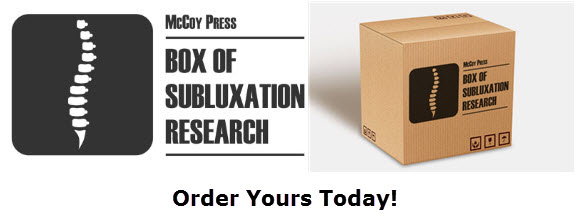
The Florida Chiropractic Physicians Association (FCPA) is pushing language for a new injectables drug bill to be submitted in the State of Florida. In a letter to members the FCPA states: "If we added this to our law it would not solve all of our problems although it might be a good beginning to correcting our problems. Perhaps we could all unite together to get this or similar verbiage in our law." According to a survey the FCPA is conducting, 80% are in favor of such a bill. Another recent survey conducted by the FCPA showed the overwhelming majority wanted expanded scope, including drugs, in Florida. Chiropractors can already prescribe drugs in several states and countries on at least a limited basis.
The following is the text of the bill being proposed:
ADMINISTERING PRESCRIPTION DRUG PRODUCTS.
(1) A licensee under this chapter who is certified in clinical nutrition may obtain and independently administer, during chiropractic practice, the following prescription drug products:
(a) Vitamins: (i) Vitamin A; Vitamin D (ii) All B vitamins; and (iii) Vitamin C;
(b) Minerals: (i) Ammonium molybdate; (ii) Calcium; (iii) Chromium; (iv) Copper; (v) Iodine; (vi) Magnesium; (vii) Manganese;
(viii) Potassium; (ix) Selenium; (x) Sodium; and (xi) Zinc;
(c) Fluids: (i) Dextrose; (ii) Lactated ringers; (iii) Plasma lyte; (iv) Saline; and (v) Sterile water;
(d) Epinephrine; and (e) Oxygen for use during an emergency or allergic reaction.
(2) The prescription drug products listed in subsection (1) of this section may be administered through oral, topical, intravenous, intramuscular or subcutaneous routes. The route of administration and dosing shall be in accordance with the product's labeling as approved by the federal food and drug administration or with the manufacturer's instructions.
(3) The prescription drug products listed in subsection (1) of this section shall be obtained from a wholesale distributor, manufacturer, pharmacy or outsourcing facility licensed under chapter 460 Code.
(4) No vitamin or mineral may be compounded, as defined in section 44. Code, by a chiropractic physician. A compounded drug product containing two (2) or more of the approved vitamins or minerals shall be obtained for office use from an outsourcing facility licensed under chapter 47 17, title, Code.
(5) Nothing herein would remove or impact the ability of a chiropractic physician who does not obtain a clinical nutrition certification to continue to utilize nonprescriptive nutritional supplements.
4 SECTION 8. That Chapter 460 Code ?, be, and the same is hereby amended by the addition thereto of a NEW SECTION, to be known and designated as Section ?, Code ?, and to read as follows:
7 CERTIFICATION IN CLINICAL NUTRITION. (1) To qualify for certification in clinical nutrition, a licensee of this chapter must have successfully completed a minimum of the following courses:
(a) Seven (10) credits (seventy-seven (100) hours) of didactic human nutrition, nutrition biochemistry and nutritional pharmacology; and (b) Twenty-eight (28) hours of practicum in intravenous and injectable nutrient therapy, which must include: sterile needle practices, phlebotomy, proper injection techniques, intravenous therapy techniques intramuscular injection techniques, safety practices, and use and expected outcomes utilizing micronutrients, response to adverse effects, lab testing and blood chemistry interpretation.
The courses required by this subsection must be taken from an accredited chiropractic college or other accredited institution of higher education and must be from an accredited program at the college or institution or be a program approved by board rule.
For purposes of this section, "accredited" means accredited by an accrediting agency recognized by the United States department of education.
(2) Until January 1, XXXX, a licensee of this chapter who commenced obtaining the education requirements of subsection (1)(a) of this section no earlier than ?, and thereafter successfully completed those requirements, may be determined to have satisfied the requirements of subsection (1)(a) of this section as provided in board rule.
(3) The practicum required for certification in clinical nutrition by subsection (1)(b) of this section must commence and be successfully completed after the effective date of this section and pursuant to board rule.
(4) All active chiropractic physicians wishing to obtain certification in clinical nutrition must first successfully complete the education described in subsection (1) of this section.
(6) All chiropractic physicians certified in clinical nutrition must maintain a current cardiopulmonary resuscitation (CPR) and basic life support (BLS) certification, as well as have BLS equipment on the chiropractic premises where treatment is being performed.
